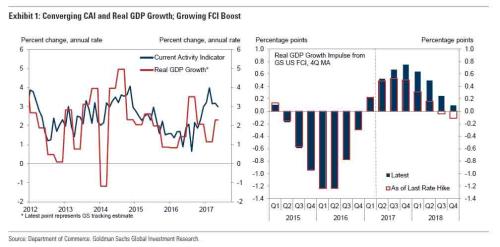Within the eurozone there are great stresses. At one extreme there are punitive costs of borrowing for Greece, Cyprus, Portugal, Ireland, Spain and Italy; at the other there is zero or negative interest rates for Germany, the Netherlands and Finland. Doubtless the first group begets the second, as captive investors in euros have to buy government bonds, and this requirement is being funnelled away from risk into safety.
This is the opposite of the convergence intended behind the creation of the euro. The euro itself, as can be seen from the chart below, is not looking too healthy either, and this is surely no coincidence. Furthermore, if it breaks the 1.2000 level to the US dollar, the chart will look very bad indeed.

The potential weakness in the euro, which on the chart suggests there is little visible support above the $0.80 level once $1.2000 is broken, suggests current difficulties in the eurozone could begin to have a serious effect on the currency. It is time therefore to think about the euro itself.
Launched in January 1999, the original members of the eurozone bent the entry rules to qualify with respect to budget deficits and the level of outstanding government debt. This was not an auspicious start, but hey, governments bend the rules all the time, don’t they? Greece then joined two years later, and would have had a severe funding crisis if it hadn’t. This was bending the rules at a new level.
There followed what economist Philipp Bagus aptly called the tragedy of the commons. Eurozone members, who on their own would have had difficulty accessing affordable credit, used the low interest rates on the back of Germany’s rating to borrow, borrow, borrow. This was not a problem until the financial crisis of 2008, when the borrowing became progressively more difficult, and insolvency beckoned.
These are the euro’s backers. On a rough rule of thumb, measured by the commitments behind the European Financial Stability Facility, 41% of the euro’s backers have requested, or are likely to request a bailout themselves. This brings us back to the euro itself, a fiat currency that depends for its value on government promises.
The difference between this fiat currency and all others is that there is no single government guaranteeing it. They have delegated every aspect of the currency to the European Central Bank, whose balance sheet is looking increasingly precarious. Normally this would not matter, because the markets would take comfort in the backing of a single identifiable government with tax-raising powers. In this case we have 17 governments, some of them insolvent, and the solvent governments unwilling to underwrite the lot. And one of the solvent governments, Finland, is quite likely to desert the sinking euro ship: Finland is Scandinavian firstly, and European secondly. She only participates in bailouts if she obtains extra collateral. It is unlikely that she will remain committed to the eurozone project if it continues to deteriorate.
There is no identifiable government promise behind the euro and the ECB. This could begin to matter very soon, which is why that USD1.2000 level should be watched. And if that happens, interest rates for Germany, Holland and Finland are bound to rise into positive territory.
This article was previously published at GoldMoney.com.



Forgive my ignorance, but some of the background assumptions here aren’t clear to me …
“if it breaks the 1.2000 level to the US dollar, the chart will look very bad indeed … the chart suggests there is little visible support above the $0.80 level once $1.2000 is broken”
Does the market really work this way? Although I don’t expect economic actors to be rational, this strikes me as deeply irrational.
“a fiat currency that depends for its value on government promises … The difference between this fiat currency and all others is that there is no single government guaranteeing it … a single identifiable government with tax-raising powers … solvent governments unwilling to underwrite the lot“
What is the connection between a fiat currency and government promises? We all know that the “promise to pay the bearer on demand” is meaningless.
I’d have thought that the only promise that matters with unbacked fiat money is the promise to print it with moderation.
Is the idea that governments with ‘tax-raising’ powers are less likely to rely on the printing press?
mrg.
Legally there is no reason why governments should (for example) pick up bank debts – but they do (with the exception of Iceland – where the people twice voted to prevent the government doing this).
Ditto there is no legal reason for other E.U. nations (or the IMF or the European Union Central Bank) to pick up Greek Welfare State debt – but they do.
There is also (as far as I know – I am not sure about Italian law and Constitution) no legal reason for the Italian government to pick up the debts of regions like Sicily – but I rather doubt they will allow simple bankruptcy.
Ditto the Spainish government and the various Spanish regions.
Remember we live in a world where big things (such as major banks or major governments) are not ALLOWED to go bankrupt.
Say the British government can not pay for its Welfare State (which it can not – the Welfare State is much too big to be paid for) and was running a very large government deficit (which it is), will the British government simply declare bankruptcy?
No.
What happens is that the Bank of England will produce (has produced) lots of credit money on the understanding that a lot of this credit money will be lent to the British government (to finance its deficit).
Legally the European Central Bank is not supposed to do that – but thanks to pressure from the international establishment elite things have been fudged (again and again). With TRILLIONS of new Euros already created – illegally, but try doing a citizen’s arrest on the head of the European Union Central Bank (or the German Chancellor for breaking the German Constitution by signing on for various fiscal bailouts – on the contrary the international establishment elite denounce the German Chancellor for not breaking the German Constitution ENOUGH).
So FISCAL problems have MONETARY effects.
The alternative policy is to allow the allowing the banks, and the regions, and the Welfare States, to go bankrupt.
“But reforms could be undertaken…..”
Do I really have to reply to such an idea?
By the way I have now seen the reply of the Georgia academic George Selgin.
To claim that any level of bank loans are 100% from savings is not a “lie”, it is a “banal point”. It is not a lie to claim that there is no such thing as credit expansion, it is simply a banal point. And it is not a lie to claim that the only way that interest rates can fall is if there has been an increase in savings – it is simply a banal point.
So, for example, if I claimed to be Winston Churchill, British Prime Minister during World War II, this would not be a lie – it would simply be a “banal point”.
Ditto the Eurozone Central Bank people have not broken their own laws – they have engaged in a banal point.
And the German Chancellor has not broken the German Consitution – the lady has only engaged in a banal point.
So all is well.
What precisely a banal point? Lie is one translation mine would be “yer but am I bovered, face, bovered, talk to the hand the face ain’t listening”.
Samuel Eglington (by the way – nice name, good to see parents do not shy away from such names).
Professor Selgin claimed that his statement(made in a thread of comments to a post of his at the Free Banking website) that banks ONLY put the savings of people to work, and that a fall of interest rates can ONLY come from a rise in savings was not a lie – it was just a “banal point”.
It is, of course, our old friend (I speak sacastically) the “idenity” of savings and borrowing (which most of us first encountered at school or our undergraduate days at university). Where establishment economists pretend (perhaps even to themsleves) that there can be no such thing as a credit bubble, as any increase in lending automatically (indeed by definition) means an increse in savings (hence borrowing and saving being an “idenity”).
For a supposed foe of the establishment to come out with such an utter and complete load of ….. rather irritated me.
By the way a young supporter of his tried to support his statement by talking about water – pointing out (quite correctly) that one can “save water” as well as save money.
This rather missed the point that one must have water before one can save it.